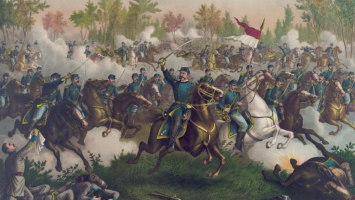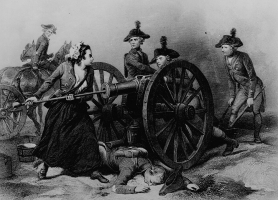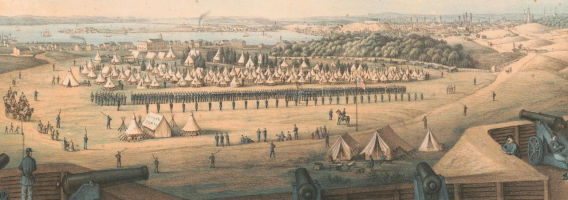Top 9 Reasons for the Trojan War
One of the major military excursions the Greeks conducted to conquer areas outside of Greece was the Trojan War. Because archaeologists have found evidence of ... read more...such an expedition, it is a mix of reality and fantasy. The epic poem The Iliad by the renowned poet Homer brilliantly narrates the conflicts of the Trojan War. Although there were many catalysts of the great siege, we have identified the top 9 reasons for the Trojan War.
-
Paris has seen its share of struggles, but they are now past. He eventually makes it back to Troy and assumes the role of a prince after a few disasters. Without realizing that Aphrodite had omitted to acknowledge her marriage to King Menelaus of Sparta, he is desperate for Helen's affection. Thus, another dangerous mission to kidnap Helen of Sparta gets underway. In the absence of Spartan King Menelaus, Paris took the occasion to travel to Sparta under the guise of a diplomatic expedition. Paris considered this as a good opportunity to begin the siege of the queen as King Menelaus had traveled to Crete to bury his uncle Crateus.
Helen was either hit by Cupid's arrow or by Eros, the personification of love when he entered Sparta's gates. As predicted by Aphrodite, she fell in love the moment she set eyes on him. The deed that set off a feeling of revenge and competitiveness that fueled both Troy and Sparta was the forerunner to the Trojan War. According to legend, the renowned pair sails first to Egypt, then the terrified Paris docks at Sidon, and eventually they arrive at Troy.
The gods replaced Helen with Nephele, a hazy and ethereal lookalike, while the real Helen was already in Troy, according to a different version from the poet Stesichorus who lived in the sixth century. Whatever the circumstances, it was certain that Helen, the most beautiful woman in the world, King Menelaus's wife and the queen of Sparta, had been kidnapped, was being held captive in Troy, and that a war had been declared to retrieve her.
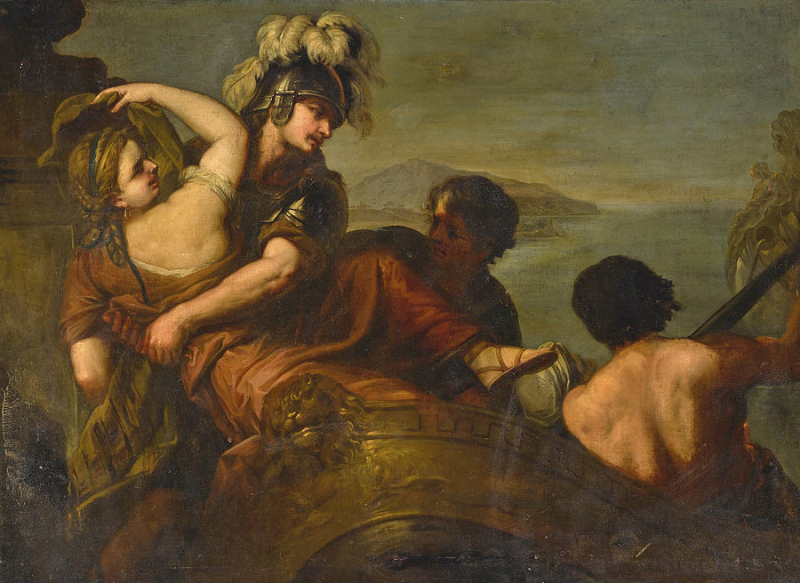
the-toast.net 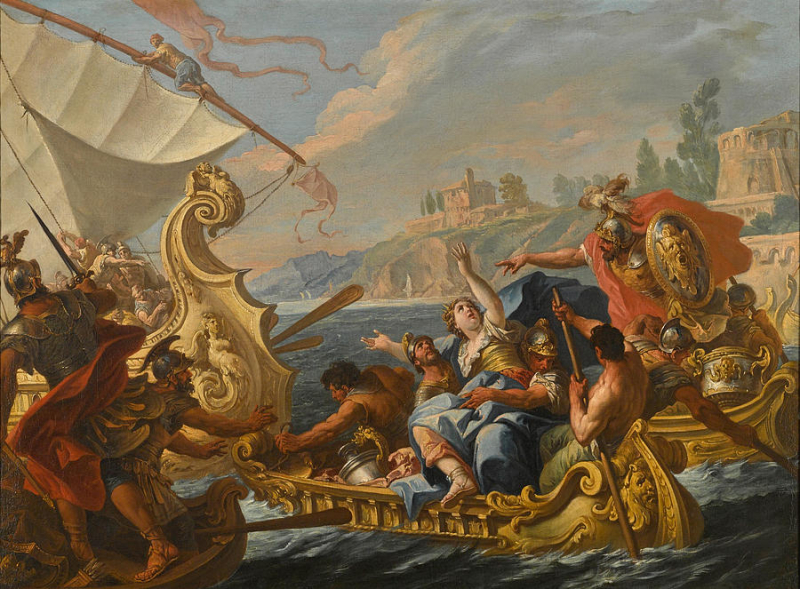
art.thewalters.org -
The God of Gods Zeus was concerned about Earth's overpopulation. He was aware that the earth was already overrun by the evil children of gods and mortals known as demigods. When compared to the Gods' cleanliness, these demigods were like pollution. Zeus thus came up with a highly brilliant strategy to wipe off the world's excessive population. The meticulous God came up with the notion of a scheme that would take shape in such a way as to absolve him of the accusations. The conspiracy may have resulted in a ten-year, enormous, bloody war that would have wiped off half the world's population.
This was Zeus's motivation for starting the battle that appeared to be fated to bring down the two enormous regimes. In reality, this is one of the most frequently mentioned and immediate causes of conflict among the other causes. At their lavish grand wedding, all the gods and goddesses came down from Heaven. Even the gods were present, with the well-known exception of Eris, the God of strife. Hermes was instructed by Zeus to keep Eris away from the entrance itself. Eris, the god of vengeance, was so much offended that he or she threw a golden apple into the celebration as a wedding present.
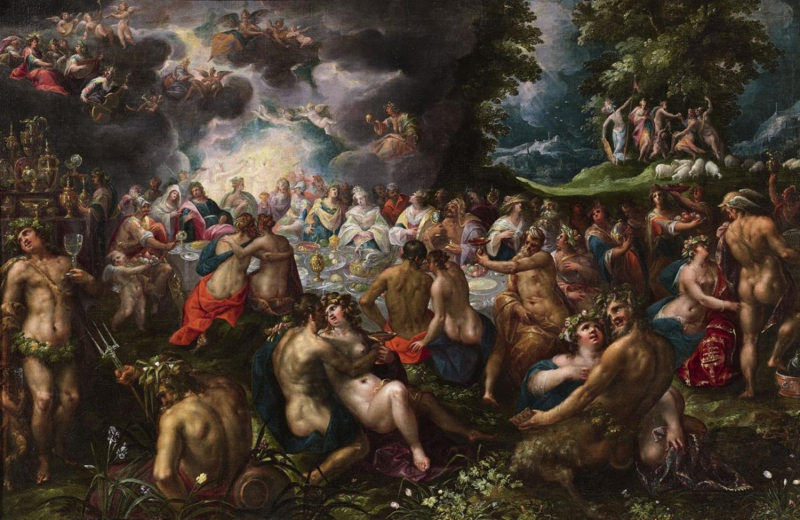
www.theoi.com 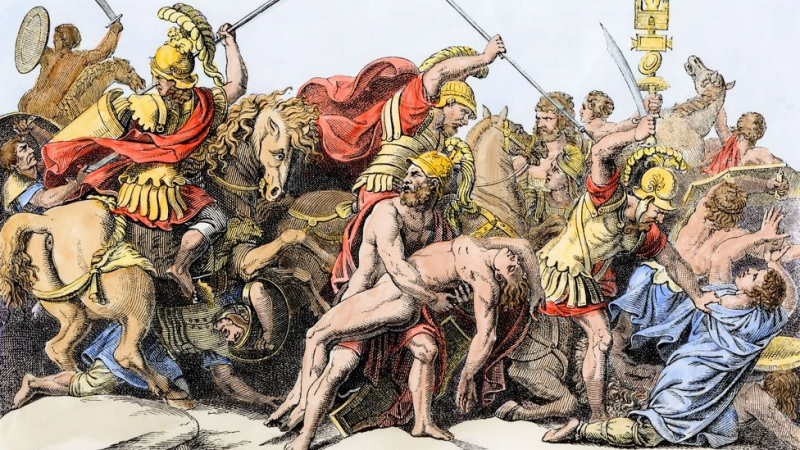
www.theoi.com -
As soon as Thetis' husband was discovered, Zeus decided to celebrate Thetis and Peleus' union with a lavish feast, which marked the start of the Trojan War. Three goddesses (Aphrodite, Athena, and Hera) got into a fight over a golden apple, commonly referred to as the Apple of Discord, and that's how the battle got started. All of this occurred during Peleus and Thetis' wedding, to which Eris, the goddess of strife and discord, was not invited. After being rejected, she flung a golden apple among the deities present "to the loveliest" in revenge. Each goddess presents him with enticing prizes to make his decision easier. In other words, these alluring incentives included long-lasting jobs, unparalleled abilities, absolute control over Paris, and the most stunning lady as his wife.
While Athena gave him knowledge and warlike agility, Hera would bestow upon him all governmental authority and sovereignty over all of Asia. The most stunning lady in the world, Helen of Sparta, and her love for Paris were promised to him by Aphrodite when she outwitted them. He cannot resist the proposition she presents to him. Aphrodite is given the apple, the prettiest of all, and Paris quickly embraces the thought of Helen. History may have been different if it weren't for the wedding, the guests, Discordia, her gift, the hefty bribes, and the verdict.
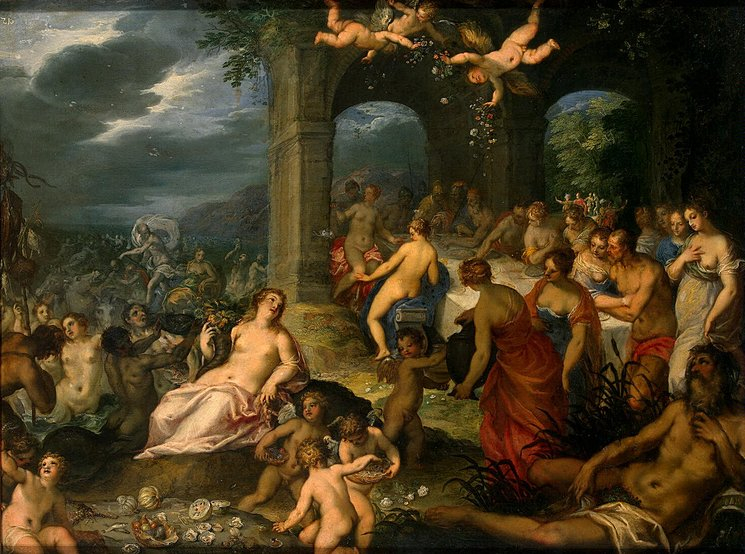
The Judgement Paris - commons.wikimedia.org 
The Judgement Paris - commons.wikimedia.org -
Hera, Athena, and Aphrodite were the three Goddesses most profoundly impacted by the turmoil the apple caused. Each one was more attractive than the other and eager to get the prize. Zeus steps in since the discussion has reached a dead end. He brings up Paris, a prince of Troy who thought he was a shepherd at the time. He was known for handing down fair judgments. So, when called upon to name the selected, loveliest, and most attractive of the three.
For those of you who do not know, Paris of Troy is another key figure in the Trojan War and the reason the siege began in the first place. He was raised among shepherds since the prophecy predicted that his birth would bring an end to the Trojans' rule forever. He spends most of his life as an upright shepherd, unaware of his status and power, until the day of the great judgment.
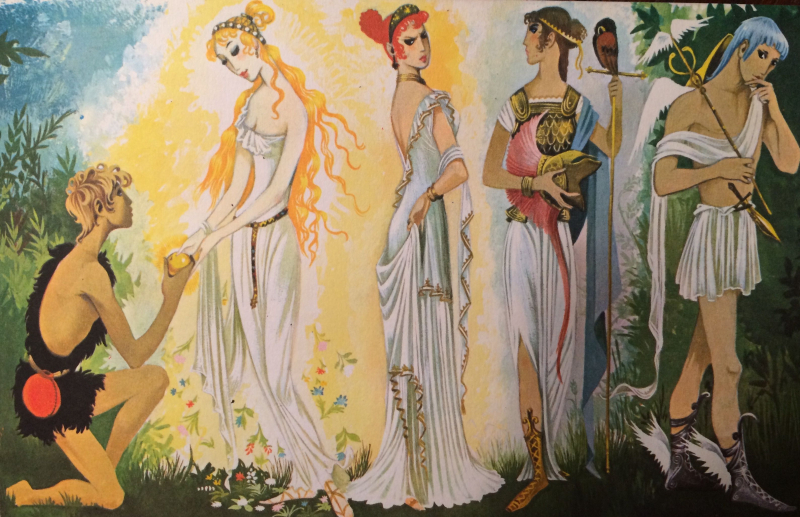
The Apple of Discord - www.pinterest.com 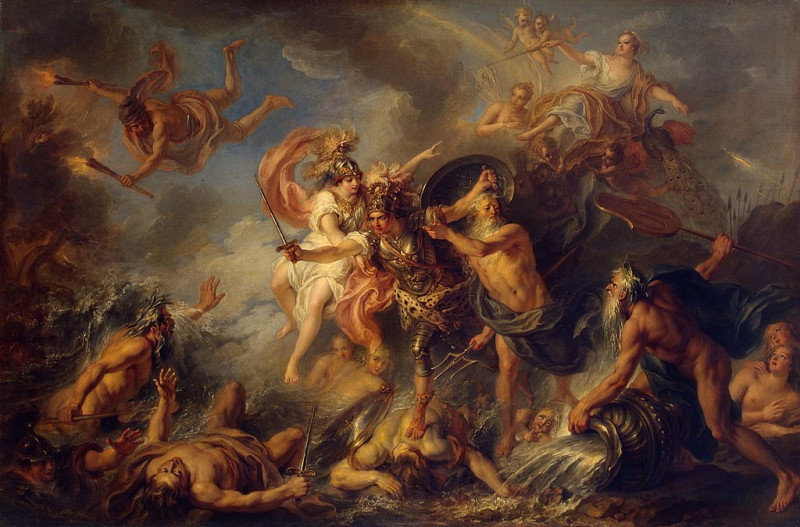
iagtm.pressbooks.com -
The prophesy that mentions the Olympian order and a heavenly love match is the origin of the Trojan War. Years before the Trojan War started, Poseidon and Zeus fell in love with Thetis, a lovely sea nymph. When they learned about the repercussions of their potential deeds, they both decided against taking Thetis as their wife. According to legend, if Thetis, the sea goddess, had a child with Zeus or one of his brothers, she would have a royal son who would be more powerful than his father and hold a weapon more potent than the trident or thunderbolt. Thetis would wed King Peleus, "the holiest man dwelling on the plain of Iolcus," since Zeus didn't want to take any chances.
Zeus purposefully weds Leda, a sea nymph, to King Peleus, an aged human God, once the weight of the prophecy sinks in. When Thetis gave birth to Achilles, their union was finally complete. Achilles, Helen's stepbrother, had a reputation for being a brave person during the Greek and Trojan Wars. His name is a byword for wartime heroes, particularly in the Trojan War for his murderous rampage that resulted in the decapitation of countless thousands of warriors over 10 years.
He plays a crucial role during the conflict for several reasons. The only warrior to defeat Hector of Troy with unmatched gallantry was Achilles. Achilles is also blamed for the deaths of thousands of Achaean troops due to his disagreement with the ruler Agamemnon and his decision to stop fighting the war.
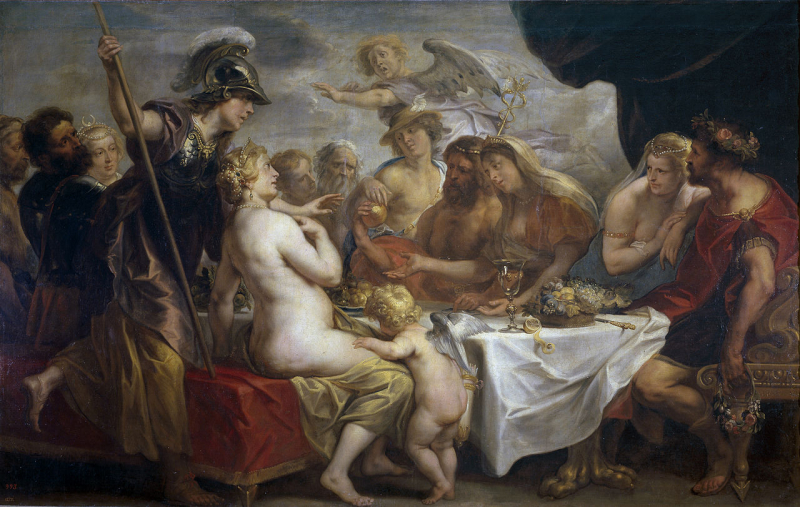
The Wedding of Thetis and Peleus - www.wikidata.org 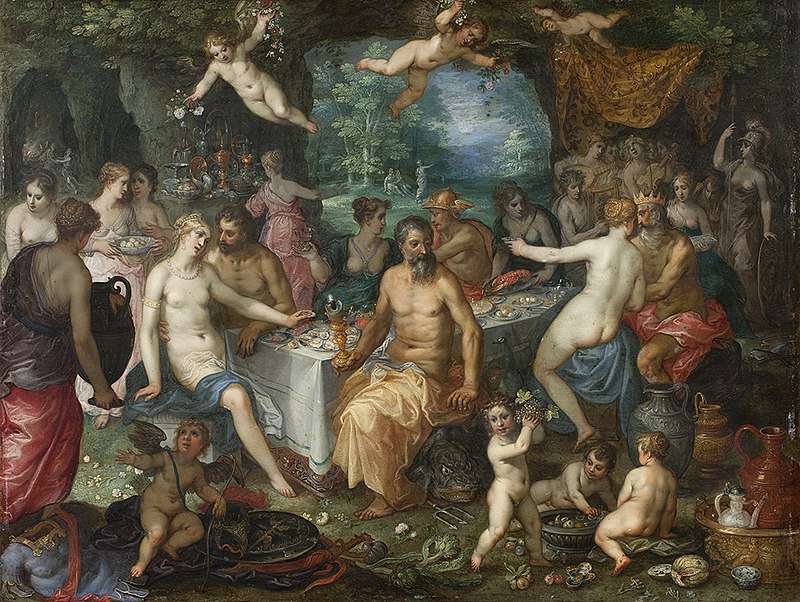
www.wikidata.org -
Despite being wed to Hera, Zeus had several relationships with both immortals and humans. Zeus cherished aesthetic beauty. The sea nymph Thetis was lovely. Zeus inevitably felt a pull for her and desired to wed her. He was well aware, nevertheless, that his father Cronus had deposed Uranus and that Zeus had cunningly taken his position. He learned of the prophecy that he would be deposed by his successor, who would be more powerful than himself, much later from Themis or Prometheus.
He was also disappointed to learn that another prophecy predicted that a son of Zeus and Thetis' union would likewise bring about his ultimate destruction. Zeus became terrified and decided to modify their marriage to alter the prophecy. As a result, it leaves him defenseless and serves as one of the major causes of the Great Trojan War.
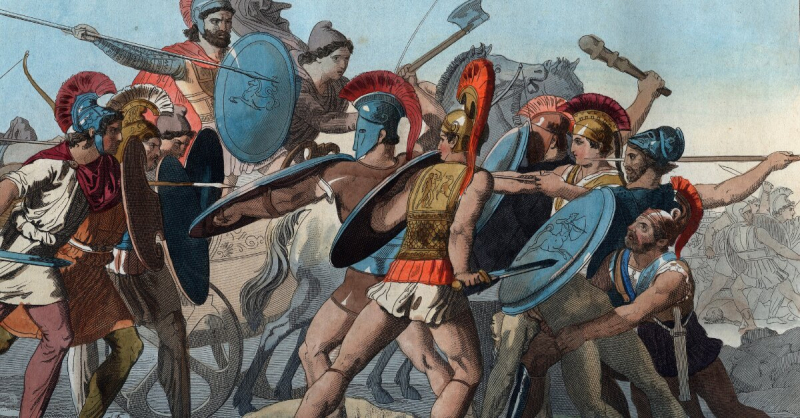
www.grunge.com 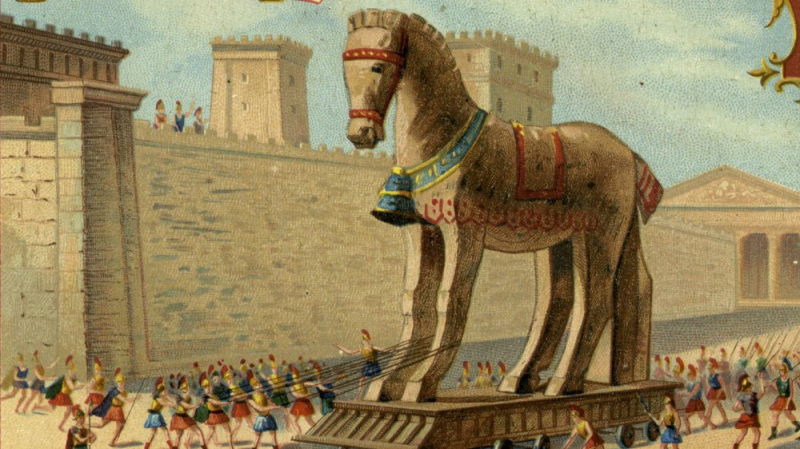
www.grunge.com -
Along with the generally acknowledged causes of the conflict, Sparta and Troy's trade rivalry is a far more plausible explanation. You might find it amusing to learn that the conflict was nothing more than a tactical move utilized by many gods and monarchs to further their own goals. The Trojan War was fought in the Bronze Age city of Troy. It had high, steep walls and was well-built, as Homer said. It had been an impenetrable city center surrounded by concrete for nine years.
The reader gets the impression that Troy was unbreakable from Homer's narrative. It was located on a Hellenistic battleground, a city that had withstood several vicious assaults. Agamemnon allegedly had a long-standing desire for the wealth of Troy. The Spartans were tempted to do that as well as expand the boundaries of their government. They viewed this as the ideal chance to assault Troy to capture whatever is both theirs and Troy itself. As a result, Agamemnon gathers Achaean soldiers and makes preparations for their excursions. The official start of the war is therefore underway at Sparta.
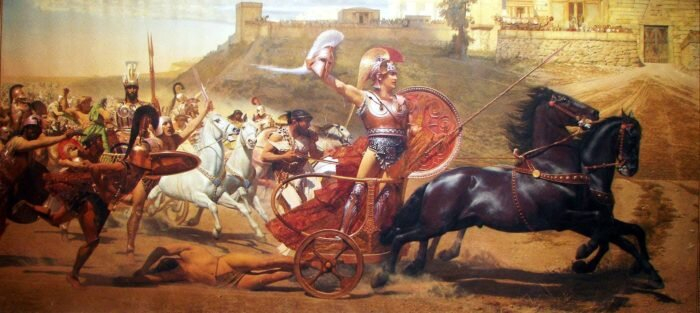
www.thoughtco.com 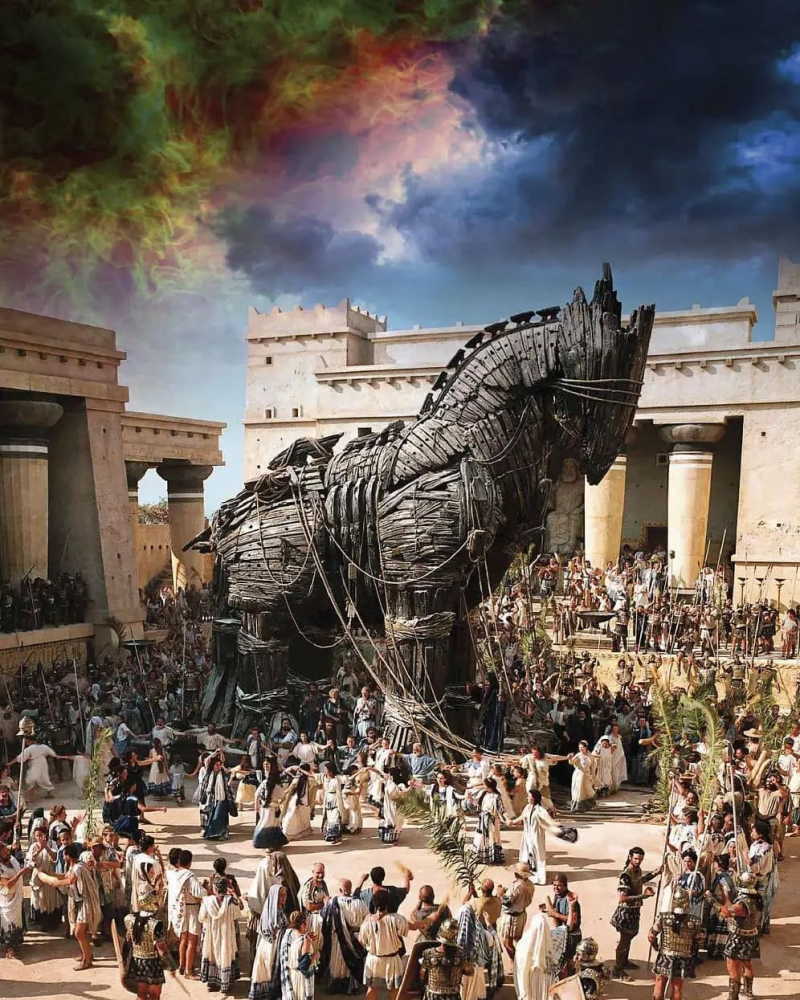
www.thoughtco.com -
Neither an incident from the conflict nor a notable character is mentioned in Xenia. Greek word Xenos, which means guest, also refers to the long-standing custom of showing visitors and guests hospitable hospitality. Respect for both the host and the visitor is one of the core concepts of Xenia. Theoxeny, which holds that occasionally visitors are deities in disguise who assume a skeleton form in the world of humans to interact with them, has historically been acknowledged and practiced by Greeks. And Zeus, also known as Zeus Xenios, who promoted this custom as a sacred ceremony for appeasing the gods, is the defender of this tradition.
When Paris from the family of Priam of Troy came to Sparta, he broke the host's tradition of Xenia by kidnapping Helen in retaliation for the hospitality of the host. According to the Iliad, the Spartan King considered the Trojan prince's blatant carelessness to be a serious affront. The Spartans were compelled to fulfill their obligation to Zeus and revenge for their dishonor. A flagrant violation of a clearly stated rule or tradition of Xenia led to the start of the conflict.
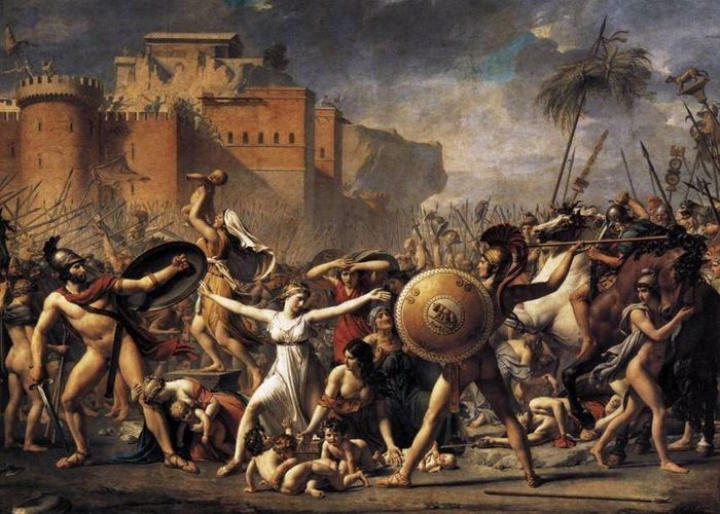
greeking.me 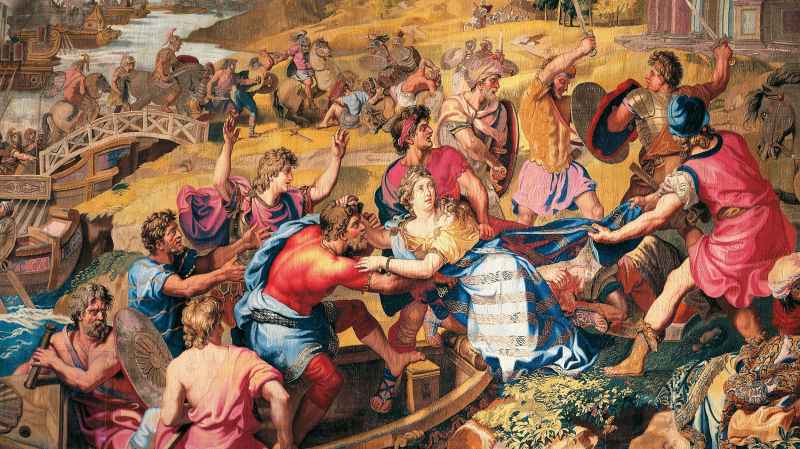
greeking.me -
The woman who launched 1,000 ships is known as Helen. The Spartans had a thousand ships launched shortly to seek revenge on the Trojans. They approach Troy's gates with this enormous fleet of ships. The Spartans send their adversaries a message of peace before beginning the planned events. They decided to absolve Troy of their wrongdoing and engage in diplomatic negotiations since they were aware that war against Troy may endanger their soldiers and city.
When Troy refuses to end the conflict, though, their suggestion is rejected. They were standing at the beginning of a long, turbulent road that only went downhill from there. The Spartans are credited in Homer's epic for teaching nonviolence while being unconquerable. Thus, the most talked-about battle in history was pronounced to be one of treachery, tragedy, and romance among mortals, but it was everlasting in its telling as a story.

www.pinterest.com 
www.pinterest.com











